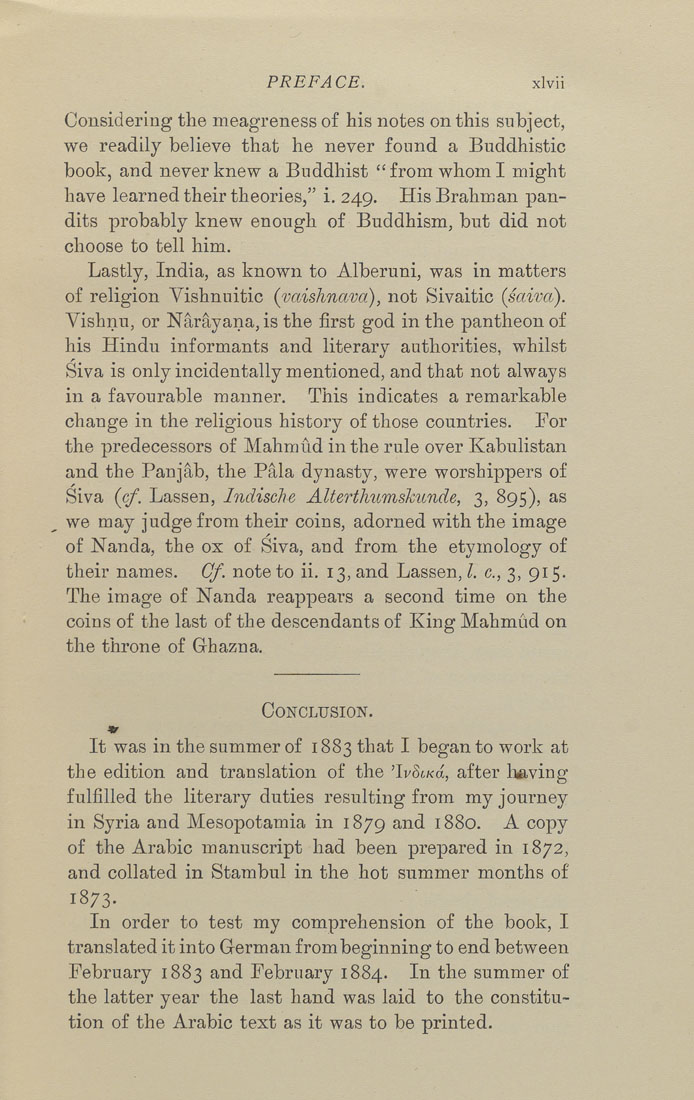Bīrūnī, Muḥammad ibn Aḥmad, Alberuni's India (v. 1)
(London : Kegan Paul, Trench, Trübner & Co., 1910.)
|
||
|
|
|
|
| Page xlvii |

PREFACE. xlvii Considering the meagreness of his notes on this subject, we readily believe that he never found a Buddhistic book, and never knew a Buddhist "from whom I might have learned their theories," i. 249. His Brahmaan pan¬ dits probably knew enough of Buddhism, but did not choose to tell him. Lastly, India, as known to Alberuni, was in matters of religion Vishnuitic (vaishnava), not Sivaitic (saiva). Vishnu, or Narayana, is the first god in the pantheon of his Hindu informants and literary authorities, whilst Siva is only incidentally mentioned, and that not always in a favourable manner. This indicates a remarkable change in the religious history of those countries. For the predecessors of Mahmud in the rule over Kabulistan and the Panjab, the Pala dynasty, were worshippers of Siva (cf. Lassen, Indische Alterthumskunde, 3, 895), as we may judge from their coins, adorned with the image of Nanda, the ox of Siva, and from the etymology of their names. Cf. note to ii. 13, and Lassen, /. c, 3, 915. The image of Nanda reappears a second time on the coins of the last of the descendants of King Mahmud on the throne of Ghazna. Conclusion. It was in the summer of 1883 that I began to work at the edition and translation of the 'IvSlko, after Imving fulfilled the literary duties resulting from my journey in Syria and Mesopotamia in 1879 and 1880. A copy of the Arabic manuscript had been prepared in 1872, and collated in Stambul in the hot summer months of 1873. In order to test my comprehension of the book, I translated it into German from beginning to end between February 1883 and February 1884. In the summer of the latter year the last hand was laid to the constitu¬ tion of the Arabic text as it was to be printed. |
| Page xlvii |







